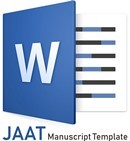E-Filing Implementation, Tax Compliance, and Technology Authority
DOI:
https://doi.org/10.30871/jaat.v6i1.2822Keywords:
Tax Accounting, E-Filling, Tax Compliance, Technology AuthorityAbstract
The study explicates how the real picture of the implementation of E-Filing at the mezzo level is, how far E-Filing utilization influences the level of compliance of WP OP in KPP, and how wide the gap is between taxpayer's technology authority and E-Filling implementation. The research employed the case study qualitative research framework using the five-step model. The data collected were gathered from interviews with four informants, the tax office's internal documents, and observation at the office. Those data were analyzed using thematic analysis. The research findings indicate that individual taxpayers in rural areas in Indonesia are not technologically literate. Therefore, the implementation of an electronic income tax report program is mostly ineffective because most of the taxpayers are still submitting their income tax reports manually to the tax office. Nevertheless, The E-filing program is proven to increase the compliance level of the taxpayers. To increase the E-Filling literacy is to improve the technology authority of the taxpayers by holding more seminars on how to have out the E-Filling.
Downloads
Downloads
Published
How to Cite
Issue
Section
License
Copyright (c) 2021 Resi Ariyasa Qadri, Emanuel Eko Darmawan

This work is licensed under a Creative Commons Attribution-ShareAlike 4.0 International License.











